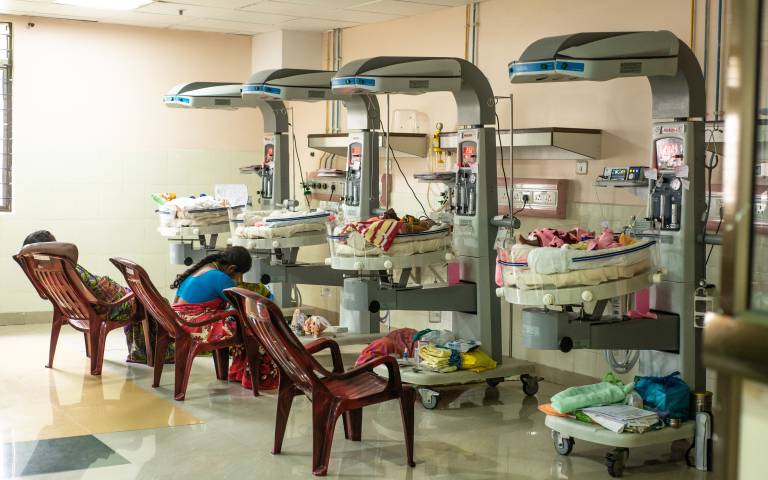A global observational study co-led by UCL, which involved more than 3,200 newborn babies suffering from sepsis in 19 hospitals in 11 countries, has shown that many newborns are dying because the antibiotics used to treat sepsis are losing their effectiveness.

The study, conducted from 2018 to 2020, found there was high mortality among infants with culture-positive* sepsis (almost 1 in 5 across the hospital sites), and a significant burden of antibiotic resistance. The study has provided a wealth of high-quality data aimed at improving the treatment of newborn babies with sepsis.
The findings of the observational study have been published in a paper in PLOS Medicine co-authored by a global team of over 80 researchers spanning four continents.
The study was conducted by the Global Antibiotic Research and Development Partnership (GARDP) in collaboration with the Medical Research Council Clinical Trials Unit at UCL, whose research team led in analysing the data; St George's, University of London (SGUL); Penta - Child Health Research; and the University of Antwerp.
The study aims to inform WHO guidelines on treatment for newborn babies with sepsis. Dr Wolfgang Stöhr (MRC Clinical Trials Unit at UCL) said: "Organisms evolve, drug resistance changes; that is why clinical guidelines for neonatal sepsis need constant adaptation. Updating guidelines relies on recent and good evidence, so this observational study is a significant step towards better treatment."
Dr Manica Balasegaram, Executive Director of GARDP, said: "It was very important to undertake this study to get a better understanding of the kind of infections we're seeing in newborns in hospitals, the bugs causing them, the treatments that are being used and why we are seeing more deaths. The study has given us vital information which will help us to better design clinical trials and ultimately improve the care and outcome of babies with neonatal sepsis."
Sepsis is a life-threatening bloodstream infection which affects up to 3 million babies a year globally. Every year, 214,000 newborn babies, mostly in low- and middle-income countries, die of sepsis that has become resistant to antibiotics. Newborn babies are particularly at risk of severe infection because of their underdeveloped immune systems.
Findings
There was extensive variation in mortality between the 19 hospitals in the study, ranging from 1.6% to 27.3%, with markedly higher rates in low- and middle-income countries. Leading clinicians in hospitals in Bangladesh, Brazil, China, Greece, India, Italy, Kenya, South Africa, Thailand, Vietnam and Uganda took part in the study.
Professor Sithembiso Velaphi, head of paediatrics at Chris Hani Baragwanath Academic Hospital in Johannesburg, South Africa, said: "The study exposed the glaring reality of antibiotic-resistant infections, especially in hospitals in LMICs, where we are often faced with a shortage of nurses, beds and space. The risk of infections is very high and most infections are resistant to antibiotics. If an antibiotic doesn't work, the baby often dies. This urgently needs to change. We need antibiotics that will cover all bacterial infections."
The study highlights a worryingly wide variation in treatment. More than 200 different antibiotic combinations were used by hospitals in the study, with frequent switching of antibiotics due to high resistance to treatments.
Many physicians were forced to use antibiotics such as carbapenems due to the high degree of antibiotic resistance to the recommended treatments in their units. These are classified by the World Health Organization as "Watch" antibiotics. They are recommended only for specific, limited indications as they need to be preserved. However, these were often the only antibiotics available to treat the infection.
Last-line antibiotics were prescribed to 15% of babies with neonatal sepsis enrolled in the study. Klebsiella pneumoniae was the most common pathogen isolated. It is usually associated with hospital-acquired infections.






